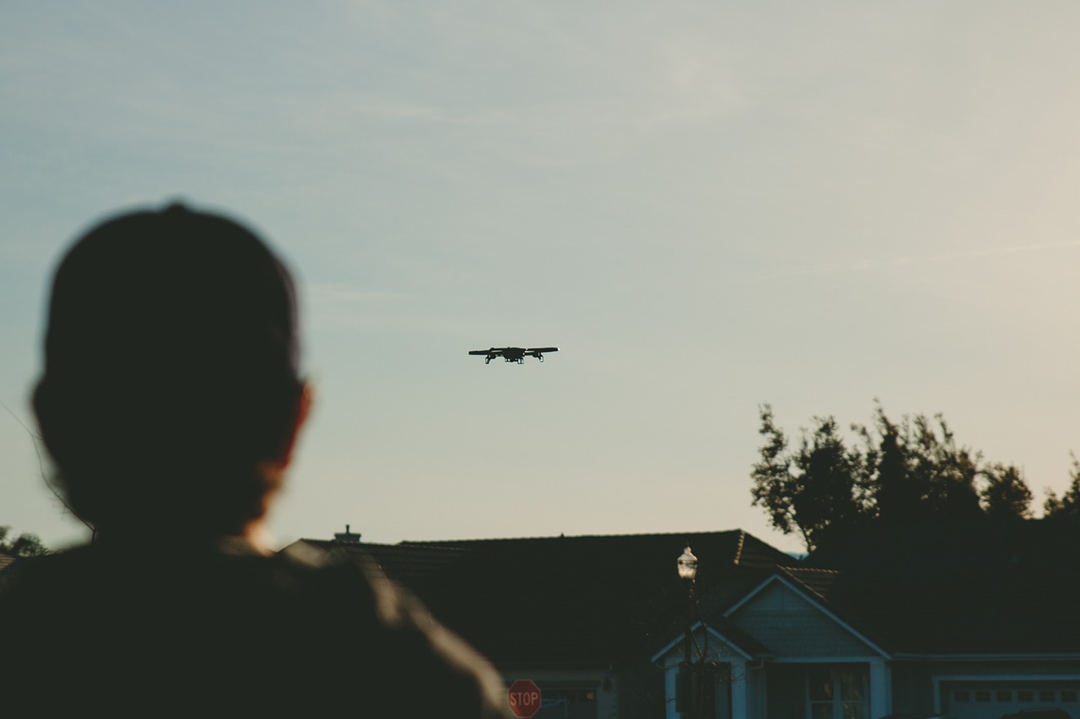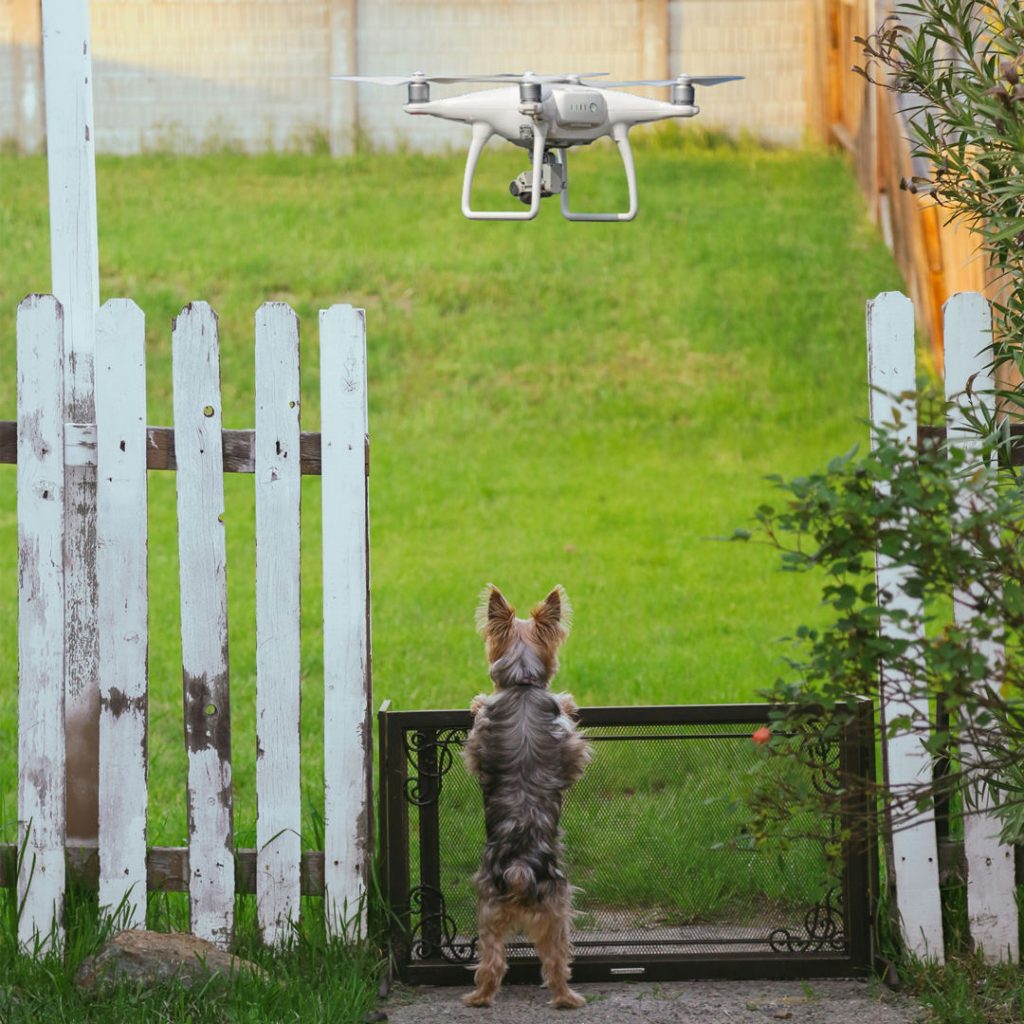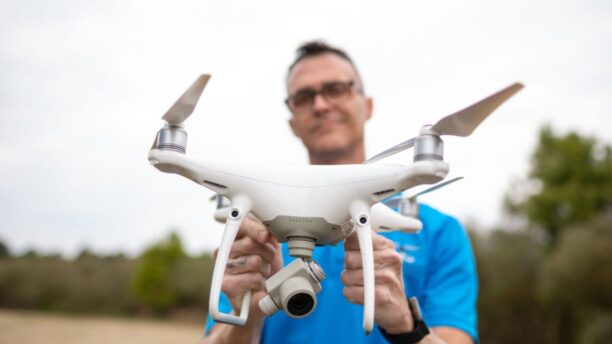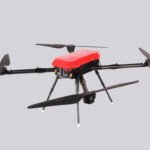Introduction
Importance of Drone Laws
Navigating the skies with a drone can be as exhilarating as it is complex. Picture yourself soaring above beautiful landscapes, capturing breathtaking views that you’ll cherish forever. But before you rush out and start piloting your new flying gadget, it’s essential to understand the importance of drone laws. Drones have transformed photography, farming, delivery services, and even search and rescue operations. However, their increasing presence in the skies raises serious considerations about safety, privacy, and legality. Why should you care about drone regulations?
- Safety: Unregulated drone use poses safety risks, including collisions with manned aircraft or accidents involving people on the ground.
- Privacy: Drones can easily intrude upon people’s privacy, allowing for surveillance that some may find invasive.
- Accountability: Enforcing laws ensures that drone operators are held accountable for their actions, which maintains public trust.
Thus, understanding drone laws not only ensures your enjoyment but also protects the rights and safety of others.
Overview of North Carolina’s Regulations
In North Carolina, the legislation governing drone use serves to balance innovation and safety. The state has developed regulations that influence how you operate drones, especially if you intend to use them for commercial purposes. From state-specific guidelines to compliance with federal laws, being cognizant of these regulations can help you navigate the drone landscape effectively. Here are some key aspects of North Carolina’s drone regulations:
- Integration with Federal Laws: North Carolina aligns its drone laws with the Federal Aviation Administration (FAA) guidelines. This includes rules about where and how high you can fly, ensuring the safety of manned aircraft.
- Local Laws: In various counties and cities, local governments may have additional rules concerning drone use. It’s crucial to check area-specific laws before taking flight. This could include:
- No-fly zones near airports.
- Restrictions in specific areas like parks or school properties.
- Permitted Uses: North Carolina generally allows recreational drone use; however, there are stipulations on:
- Flying over groups of people.
- Maintaining visual line of sight.
- Educational Resources: The state provides resources for drone pilots to educate themselves on regulations and responsible flying. Local clubs and organizations often host training sessions or workshops.
Understanding these nuances will prepare you for safe and enjoyable drone piloting. Whether you’re capturing images of the Blue Ridge Mountains or conducting agricultural inspections, knowing the legal landscape will enhance your drone experience. As you embark on your drone journey, remember an important fact: knowledge is power! Having a solid grasp of what you can and cannot do with a drone will not only help you avoid legal hassles, but also increase your confidence in operating your craft. Additionally, you can take a step further by joining local drone communities or forums. Engaging with fellow enthusiasts will provide valuable insights about best practices, share anecdotes, and possibly even unveil the hidden gem of drone spots across the state. In summary, the allure of flying drones rests not just in the thrill of operating them, but in the responsibility that comes with it. Understanding drone laws in North Carolina is an essential step toward ensuring a fulfilling experience while flying high. With a solid grasp of both federal and state regulations, you can take to the skies with confidence and peace of mind that you’re doing your part in promoting safe and respectful drone use. So, get out there and enjoy exploring the skies, armed with knowledge about the regulations guiding your every flight! ✈️

Federal Drone Regulations
FAA Guidelines
As you gear up to take your drone into the skies, it’s crucial to understand the Federal Aviation Administration (FAA) guidelines that govern drone operations. These regulations are designed to ensure the safety of all airspace users, including other aircraft and individuals on the ground. Familiarizing yourself with these rules can save you headaches down the line—trust me, I’ve been there! Here are some key FAA guidelines that every drone pilot should know:
- Flying Height: Drones must not exceed an altitude of 400 feet above ground level unless you are flying within a 400-foot radius of a structure, in which case you may go up to 400 feet above that structure.
- Visual Line of Sight (VLOS): You must always keep your drone within your visual line of sight. This is not just a guideline but a requirement to help you avoid obstacles and understand your surroundings better.
- No Night Flying: For most recreational pilots, flying after dark is generally prohibited unless you’re equipped with special lights and have acquired a waiver. So, hold off on those late-night aerial adventures until you’re fully compliant!
- Restricted Airspace: Familiarize yourself with no-fly zones, especially near airports, military bases, and other sensitive areas. Using apps like B4UFLY can help you locate these restricted spaces.
- Weight Limit: Your drone must weigh less than 55 pounds at takeoff, including any payload (like a camera). This is particularly important for those looking to add equipment for commercial use.
By sticking to these guidelines, you not only ensure your safety but also contribute to the broader airspace safety. It’s like being part of a community where everyone has a role to play! 🚁
Registration Requirements
Once you’ve wrapped your head around the FAA guidelines, the next important step is ensuring that your drone is registered. Yes, even if you’re just flying for fun, it’s a legal requirement for drones weighing over 0.55 pounds (or 250 grams). Let’s break down this essential registration process!
- Why Register?:
- Registration ensures accountability and helps the FAA track drone usage to promote safety.
- Having your drone registered can ease any legal complications in case it gets lost or you stray into restricted airspace inadvertently.
- Registration Cost:
- The registration fee is only $5 per drone, and it’s valid for three years. That’s a small price to pay for peace of mind!
- How to Register:
- Online Process: Visit the FAA’s registration website and fill out a straightforward form. You’ll need to provide basic information like your name, address, and email.
- Provide a Unique Identifier: Upon successful registration, you will receive a unique registration number, which you must label on your drone. If you’re using multiple drones, you’ll need to register each one separately.
- Keep Records:
- Maintain a copy of your registration either digitally or printed. Having this close at hand will be helpful if you encounter any questions during your flights.
- Renewal and Updates:
- As your registration approaches its expiration date, follow the renewal process to continue flying legally. Updates to your details, such as an address change, should be submitted through the same registration portal.
In summary, understanding and adhering to FAA guidelines and registration requirements is the bedrock of responsible drone operation. Ensuring that you’re compliant not only promotes safety but also provides you with the freedom to capture stunning aerial shots without the worry of legal complications. So, with your drone registered and FAA rules in your back pocket, get ready to elevate your flying experience! 🌟

State-specific Laws in North Carolina
Permitted Areas for Drone Use
Now that you’re up to speed on federal guidelines and registration requirements, it’s time to zoom in on North Carolina’s specific laws regarding where you can legally fly your drone. North Carolina offers an incredible array of scenic locations and unique vistas, so knowing the permitted areas for drone use is key to maximizing your flying experience without running into legal trouble. First, let’s explore where you can take your drone for a spin:
- Public Spaces: Many parks and open areas in North Carolina allow drone flying, but it’s always wise to check local regulations. Some popular areas include:
- Uwharrie National Forest: This beautiful area is perfect for panoramic views. Just remember to follow both state and federal guidelines.
- Outer Banks: Flying along the coastline can give you stunning shots of the ocean and sandy beaches. Again, ensure you’re not flying near businesses or residential areas.
- Private Property: You’ll need permission if you’re looking to fly over private property. This is not only a matter of respect but also a legal requirement. If you’ve got a friend with a big backyard, that’s a fantastic spot to practice!
- Events and Gatherings: If you’re thinking of capturing a local festival or event, check with event organizers to see if drone photography is allowed. Many public events might have specific rules, and getting a permit could be necessary.
- Schools and Hospitals: Generally, flying near schools, hospitals, or other gatherings of people might be heavily restricted or even prohibited. Always check local policies before flying near these areas.
Knowing where you can fly not only opens up a world of creative possibilities but also ensures you’re flying within the law. For more precise information, some useful resources include the North Carolina Department of Transportation and local drone user groups.
Restrictions on Flying Drones over People
While exploring the skies above North Carolina, one of the most significant restrictions you need to be aware of is flying your drone over people. This law is in place to safeguard the safety and privacy of individuals who may be unaware that a drone is hovering above them. Here’s what you should know regarding these restrictions:
- No-Fly Zone Above Crowds: Under North Carolina law, you cannot fly your drone over people who aren’t directly participating in the flight operations. This means if you’re at a festival, concert, or any event where crowds are present, you should keep your drone at a safe distance.
- Exceptions for Special Cases: There are some scenarios where you might be able to fly over people, but these usually involve obtaining special waivers from the FAA. If you’re considering a commercial venture, like aerial photography for a large gathering, it’s worth looking into these exceptions to ensure all your bases are covered.
- Informed Consent: If you’re flying over an area where people are gathered, it’s advisable to let them know you’re doing so. Creating a plan in advance can help manage the expectations of the people around you. Plus, it’s courteous!
- Staying Aware: Always keep an eye out for individuals who may not be aware of your drone, especially in busy public spaces. It’s your responsibility to avoid causing any distractions or disturbances while you’re flying.
In summary, being aware of where you can and cannot fly is crucial in North Carolina. By sticking to permitted areas and understanding the restrictions on flying over people, you can enjoy the vast opportunities for capturing breathtaking aerial footage while ensuring everyone’s safety and privacy. As you plan your flights, think about your surroundings, and remember: a respectful pilot is often the most successful one! 🚀

Licensing and Certification
Pilot License Requirements
As you’ve discovered the ins and outs of where to fly your drone in North Carolina, the next step is getting familiar with the licensing and certification requirements. If you’re serious about flying drones, especially for commercial purposes, understanding the pilot license requirements is crucial. This not only ensures you’re operating legally but also gives you the confidence to navigate the skies. If you want to fly drones commercially, you’ll need a Remote Pilot Certificate from the FAA. Here’s a handy breakdown of the requirements and steps involved:
- Eligibility:
- You must be at least 16 years old.
- You should be able to read, write, speak, and understand English.
- A medical exam isn’t required as part of the process, but if you have a medical condition that could impair your ability to fly, it’s advisable to consult with a healthcare provider.
- Knowledge Test:
- You’ll need to pass a Knowledge Test at an FAA-approved testing center. The test covers essential topics such as airspace classifications, weather effects, emergency procedures, and operating rules.
- I remember walking into the testing center feeling a mix of excitement and nerves. But once I got to the exam, I realized that all the studying paid off!
- Application Process:
- After passing the test, complete the FAA Form 8710-13 for the Remote Pilot Certificate and submit it to the FAA. You’ll also need to provide your test results.
- You can do this via the FAA’s Integrated Airman Certification and Rating Application (IACRA) website. It’ll guide you through the process.
- Certification Renewal:
- Your Remote Pilot Certificate doesn’t last forever! You’ll need to renew it every 24 months, which involves either passing a recurrent knowledge test or completing specific training. Continuing education keeps you sharp and stays updated on any regulatory changes.
For anyone looking to turn their drone hobby into a pursuit or even a career, getting this certification is a great leap toward professional operations. It opens up opportunities in aerial photography, inspections, agricultural monitoring, and much more! 📸
Drone Registration Process in North Carolina
After securing your pilot’s license, the next step is to ensure your drone is registered. Your drone registration in North Carolina must align with federal rules, and here’s how to navigate through the process effectively:
- Registration Requirements:
- Any drone weighing more than 0.55 pounds (or 250 grams) must be registered with the FAA. This applies to recreational as well as commercial pilots.
- The registration process is simple and usually takes just a few minutes online.
- Online Registration:
- Head over to the FAA’s DroneZone site (https://faadronezone.faa.gov). Here, you will create an account and fill out the necessary information.
- Ensure you have any required documents handy, such as your pilot certificate (if applicable), to make the process easier.
- Cost and Duration:
- The registration fee is a nominal $5 per drone, which covers a period of three years. After that, you’ll need to renew it.
- You will receive a unique registration number. Keep it handy, as you’ll be required to label your drone with this number.
- Displaying Registration:
- Label your drone with your registration number in a visible location. This helps in identifying ownership should your drone ever get lost or cause any issues.
- Additionally, always carry a digital or printed copy of your registration. It can come in handy if you get approached by law enforcement while flying.
Following these licensing and registration steps ensures you’re not only compliant with regulations but are also well-prepared for the thrilling journey of drone flying. Just imagine capturing that stunning sunset or documenting a sports event without worry—knowing you’re following the law makes it all the more enjoyable! 🌅 In summary, obtaining a Remote Pilot Certificate and registering your drone are essential steps for anyone looking to fly legally and responsibly. With the right preparation, you’re well on your way to mastering the skies of North Carolina and beyond!

Privacy and Security Concerns
Surveillance Issues
As you soar through the skies with your drone, it’s essential to consider the privacy implications that come with this powerful technology. Drones can capture stunning imagery and provide unique perspectives, but they also raise significant surveillance concerns. With the rapid advancement of drone capabilities, the line between fun hobby and privacy invasion can sometimes get blurred. Here are some key points to ponder regarding surveillance issues with drones:
- Invasion of Privacy: Drones equipped with high-definition cameras can easily capture images or video of people in their homes, yards, or private spaces without their knowledge or consent. This has led to a growing concern about unauthorized surveillance.
- Public Perception: As you enjoy your drone flights, keep in mind that not everyone shares the same enthusiasm. Many people are uneasy about the idea of being filmed from the sky, even in public spaces. Respecting others’ boundaries is crucial in maintaining a positive image for drone enthusiasts.
- Laws and Regulations: In North Carolina, as in many other states, there are laws designed to protect individuals from unwanted drone surveillance. Laws may include prohibitions against using drones to gather evidence for criminal prosecutions or to invade someone’s secluded property.
For instance, I once had a neighbor express concerns about privacy when I was filming my backyard garden. While I had no plans of invading their privacy, it was a reminder of how important it is to be respectful and considerate of everyone nearby. Understanding the balance between capturing fantastic aerial footage and respecting personal privacy is vital. If you’re ever in doubt about whether you should fly your drone in a certain area, it might be better to err on the side of caution or ask permission beforehand.
Counter-Drone Measures in the State
In response to the growing concerns about privacy and safety, many states, including North Carolina, have begun to implement counter-drone measures. These regulations aim to deter irresponsible drone use while promoting safe operations. Let’s delve into some of the prominent counter-drone measures that you should be aware of:
- No-Fly Zones:
- Certain areas are designated as no-fly zones, which means you cannot operate your drone there under any circumstances. These include locations near airports, military facilities, and critical infrastructure such as hospitals.
- Local municipalities might also establish their own no-fly zones, especially concerning public events or gatherings. Staying informed about these restrictions is crucial for safe flying.
- Drone Detection Technology:
- Many public and private entities are implementing counter-drone technology, such as radar systems that can detect and track unauthorized drones in restricted airspace.
- Facility operators, such as stadiums or large events, may employ drone detection systems to enhance security and prevent potential issues from rogue operators.
- Legislation for Abuse:
- North Carolina has enacted privacy laws limiting the use of drones for surveillance. For instance, using drones to record or photograph individuals without consent in most situations is prohibited.
- Violations can lead to legal repercussions, highlighting the importance of being aware of and adhering to these laws.
- Community Awareness and Programs:
- Local governments and organizations often conduct outreach programs to educate drone users about privacy concerns and legal responsibilities. Participating in these programs can not only bolster your knowledge but also foster positive relationships within the community.
Maintaining a proactive mindset about privacy and security is essential for the responsible drone pilot. Learning about and adhering to counter-drone measures establishes trust among fellow citizens and cultivates a harmonious flying environment. In conclusion, awareness of privacy issues and understanding the counter-drone measures in North Carolina promotes respectful and lawful drone use, which is crucial for ensuring others feel safe as you capture those awe-inspiring aerial shots. 🌈 Embracing a culture of respect and responsibility in your flying endeavors will undoubtedly enhance the overall experience for everyone involved. Happy flying! 🚀

Commercial Drone Operations
Business Regulations
As you explore the possibilities of using drones for commercial endeavors, it’s crucial to have a solid grasp on the business regulations that govern these operations. Drones are being integrated into various industries—from agriculture to real estate—and understanding the legal landscape ensures you operate smoothly without running into legal hurdles. Here are some essential business regulations for commercial drone operations in North Carolina and beyond:
- Remote Pilot Certification:
- First and foremost, if you plan to operate a drone for commercial purposes, you’ll need that Remote Pilot Certificate we discussed earlier. This certification proves that you have the requisite knowledge and skills to operate your drone safely and legally.
- Adhering to FAA Regulations:
- All commercial drone operators must comply with the FAA rules regarding drone use. This includes maintaining visual line of sight, flying at or below 400 feet, and avoiding prohibited airspace.
- Ignoring these regulations can not only lead to hefty fines but can also jeopardize the safety of your drone operations.
- Permits for Specific Uses:
- Depending on what you intend to do with your drone, additional permits may be required. For example:
- If you’re conducting aerial photography at an event, you might need permission from the venue.
- Certain research or surveying activities may require specific governmental approvals.
- Depending on what you intend to do with your drone, additional permits may be required. For example:
- Keeping Records:
- Maintain thorough records of your flights, maintenance logs, and any permits obtained. This documentation can be invaluable if you’re ever questioned about the legitimacy of your operations or in case of an accident.
- Incorporating Drones into Business:
- If you’re starting a drone-based business, consider the legal structure of your company (LLC, sole proprietorship, etc.) for liability protection and tax purposes. Consulting with a legal professional, especially one familiar with aviation laws, can provide tailored advice for your situation.
Transitioning from hobbyist to commercial operator can be an exciting challenge, but having a solid understanding of these regulations will set you on the right path! 🏗️
Insurance and Liability Requirements
As you dive deeper into commercial drone operations, addressing insurance and liability becomes a paramount concern. A drone mishap could lead to property damage, bodily injury, or even be involved in a legal dispute—hence, having the right insurance is not just a good idea; it’s a necessity.
- Types of Insurance:
- Liability Insurance: This is perhaps the most critical type of insurance for drone operators. It protects you in the event that your drone causes damage to property or injuries to a person. Depending on the scope of your operations, look for liability coverage of at least $1 million.
- Hull Insurance: This covers physical damage to your drone in the event of a crash or malfunction. If you plan to invest in high-end equipment, hull insurance can prevent a financial setback.
- Payload Insurance: If you’re using specialized equipment (like expensive cameras or sensors), consider additional coverage for your payload to protect against potential loss.
- Understanding Liability:
- Liability falls squarely on the pilot’s shoulders when piloting a drone for business. Ensure you have liability insurance to guard against claims resulting from accidents, damage, or breaches of privacy.
- Always familiarize yourself with the specific exclusions or limitations within your insurance policy; not all scenarios may be covered.
- Recommendations for Coverage:
- When obtaining insurance, seek out providers who specialize in aviation and drone coverage, as they will better understand your unique needs. Reach out to multiple insurance companies to compare policies and costs.
- If you’re part of an organization or a professional drone user group, ask for recommendations—they often have resources for preferred providers.
- Legal Considerations:
- Consult an attorney familiar with drone regulations when engaging in commercial operations. They can help draft contracts, waivers, and other documents to protect your business interests.
In summary, incorporating drones into your business opens up innovative opportunities, but ensuring compliance with business regulations and having proper insurance is vital to your success. By carefully navigating these waters and preparing for potential pitfalls, you’ll set up your venture for a bright future. 🌟 So as you get your drone business off the ground, remember: a solid foundation in regulations and liability can make your flight a smooth one. Happy flying and successful operating! 🚀

Enforcement and Penalties
Violations and Fines
As you navigate the exciting world of drone flying, it’s essential to understand the enforcement mechanisms and potential penalties for violating drone regulations. We often think of flying a drone as just a fun recreational activity, but it’s accompanied by responsibilities that must be taken seriously. The last thing you want is to find yourself in a legal quagmire because of a simple oversight. Here’s a deeper look at violations and fines associated with drone operations:
- Common Violations:
- Flying in Restricted Areas: One of the most common infractions is operating a drone in no-fly zones, like near airports or military installations.
- Failure to Register: Not registering your drone with the FAA or failing to display your registration number can lead to steep fines.
- Endangering People: Flying over crowds or failing to maintain visual line of sight could lead to serious violations.
- Inadequate Insurance: If you’re operating commercially, not having the necessary insurance or failing to secure liability coverage could result in penalties.
- Fine Structure:
- The penalties for violating federal drone regulations can vary significantly. For example:
- First Offense: Fines for minor infractions can start at around $1,100.
- Severe Violations: More serious offenses, like endangering public safety, can lead to civil penalties of up to $30,000 or more.
- Additionally, state laws may impose separate fines, so it is crucial to familiarize yourself with local regulations as well.
- The penalties for violating federal drone regulations can vary significantly. For example:
It’s important to remember that the idea is not to instill fear but to encourage responsible flying. For example, I personally know a fellow drone pilot who mistakenly flew over a crowded beach. After a polite warning from local authorities, he gained valuable insight into respecting people’s spaces and local laws. After that experience, he became an advocate for responsible drone use within our local community.
Legal Consequences for Non-Compliance
Failing to comply with drone regulations doesn’t just lead to fines—it can have serious legal ramifications. Understanding these potential consequences can profoundly impact how you operate your drone.
- Civil Liability:
- If your drone inadvertently causes damage to property or injures someone, you could be held financially responsible. This could translate to costly legal battles and compensation claims that may exceed your insurance coverage.
- Criminal Charges:
- In some cases, egregious violations can result in criminal charges. For instance, flying a drone recklessly can lead to charges of unsafe operation, a misdemeanor that carries possible jail time and/or increased fines.
- Engaging in acts that deliberately infringe upon the privacy of individuals, such as unauthorized surveillance, may even involve felony charges—something that could have lasting effects on your life and future opportunities.
- Loss of Privileges:
- A conviction for a serious violation could lead to the suspension or revocation of your Remote Pilot Certificate, effectively grounding you from any further commercial flying.
- For recreational flyers, repeated violations can result in being banned from flying altogether, a significant loss for anyone who enjoys the hobby.
- Reputational Impact:
- Beyond legal repercussions, facing penalties can tarnish your reputation as a responsible pilot. This can have long-term effects, especially if you’re looking to make a career out of drone operations, affecting your relationships within the community and industry.
In conclusion, understanding enforcement and penalties related to drone operations is vital for anyone taking to the skies, whether for fun or business. Committing to responsible flying not only protects you from financial and legal consequences but also fosters a positive community culture for all drone enthusiasts. By staying informed and aware of local laws and regulations, you can confidently pursue your passions without crossing any lines. Remember, flying a drone comes with great freedom, but with that freedom comes great responsibility! 🚁🌟



